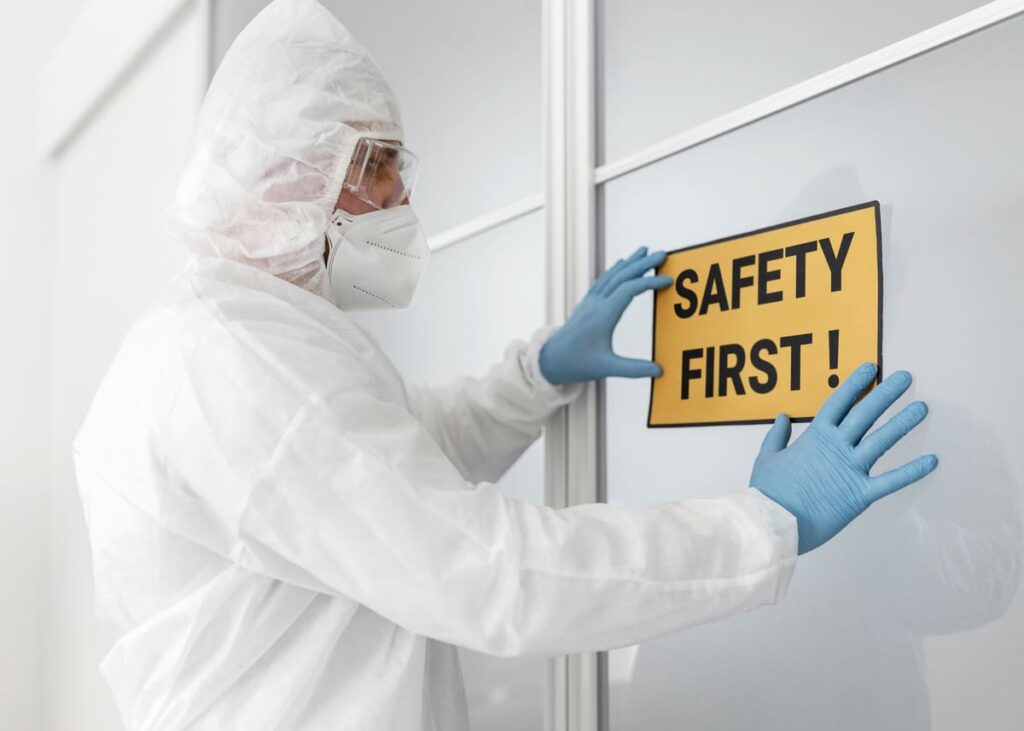
If you’ve spoken up about unsafe working conditions—such as broken equipment, extreme heat, or lack of PPE—only to be punished, demoted, or even fired, you may be the target of illegal retaliation. California law offers strong protections for workers who report health and safety concerns, whether to a supervisor, HR, or Cal/OSHA.
You have the legal right to a safe and healthy workplace — and to speak out about hazards without fear of losing your job. In this guide, we’ll walk you through your rights under California law, what qualifies as retaliation, and how to take action if you’ve been wrongfully terminated for raising safety concerns.
📊 What Are Unsafe Working Conditions?
Unsafe working conditions can pose serious risks to your health and safety — and under Cal/OSHA and federal OSHA standards, employers have a legal obligation to ensure a safe environment for all workers. These conditions can include, but aren’t limited to:
Broken or dangerous machinery or tools
Lack of proper safety equipment or personal protective gear (PPE)
Exposure to toxic substances or harmful chemicals without proper precautions
No access to clean drinking water, restrooms, or basic sanitation
Overheated facilities or poor ventilation, especially in hot weather
Failure to follow public health protocols for infectious diseases (like COVID-19)
If you experience or observe these hazards, you have the right to report them. Employers are legally required to address known hazards and cannot retaliate against workers who raise valid concerns about safety issues.
📈 Legal Protections for Whistleblowers in California
California has some of the strongest whistleblower laws in the country. Below are the main protections workers should know:
🔹 Labor Code § 6310 – Protection for Reporting Unsafe Conditions
This law makes it illegal for employers to retaliate against workers who report unsafe working conditions, whether they speak up to Cal/OSHA or to their own supervisor or HR department. The protection also covers employees who testify in any Cal/OSHA proceeding or participate in investigations. Even if Cal/OSHA doesn’t find a violation, you are still protected as long as you made the complaint in good faith.
🔹 Labor Code § 1102.5 – Broader Whistleblower Protection
While § 6310 focuses specifically on safety, Labor Code § 1102.5 is a broader whistleblower statute. It protects employees who report any type of legal violation — whether it’s related to labor law, health codes, environmental issues, or corporate misconduct. The law also bars retaliation for refusing to participate in illegal activity. You don’t need to be right about the violation — just reasonably believe that it occurred.
🔹 Cal/OSHA Whistleblower Protections – Anonymous Reporting
Cal/OSHA offers a way for employees to report hazards anonymously. This ensures that even undocumented workers or those worried about retaliation can safely alert the agency to dangerous work conditions. Cal/OSHA investigates complaints, conducts inspections, and penalizes employers who violate safety laws or retaliate against workers who report them.
You don’t need to prove the condition was truly unsafe — you only need a reasonable belief that it posed a risk.
🚫 What Retaliation Looks Like
Retaliation for reporting workplace hazards isn’t always obvious. It can include:
Sudden termination or layoff
Reduction in hours or pay
Negative performance reviews
Reassignment to undesirable shifts
Harassment or verbal threats
Isolation by management
If these actions happen shortly after you raise a concern, they may be considered unlawful retaliation.
📄 Real Case Example: Warehouse Worker Fired After Heat Complaint
Rosa, a warehouse packer, complained about extreme heat and poor ventilation. Shortly after, her hours were cut and she was fired for “performance issues.”
With the help of a California employment attorney, she filed a Cal/OSHA complaint and a retaliation claim. Rosa was reinstated and awarded $15,000 in damages.
Tell us your story, reach out to Bibiyan Law today!
🔧 What To Do If You Were Retaliated Against or Fired
Take these steps to protect yourself:
Document your complaint – Save emails, HR reports, texts, and notes
Track retaliation signs – Note schedule changes, write-ups, or disciplinary actions
Report to Cal/OSHA – You can file anonymously online or by phone
Contact an employment lawyer – Especially if you were terminated or demoted
You have only 6 months to file a Cal/OSHA retaliation complaint, so time matters.
💵 Compensation You May Be Entitled To
If you win a whistleblower retaliation case in California, you may recover:
Reinstatement to your job (if desired)
Back pay and lost future income
Damages for emotional distress
Civil penalties and legal fees
These remedies are meant to make you whole and deter employers from punishing workers who speak out.
✅ Bibiyan Law Holds Employers Accountable
At Bibiyan Law Group, we advocate for California employees who’ve been punished or fired for speaking up about unsafe working conditions.
Our team can help you:
Gather the documentation needed to support your case
File a Cal/OSHA retaliation complaint
Pursue a lawsuit for wrongful termination and damages
📞 Free Confidential Consultation
You deserve a safe workplace — and protection when you report hazards. Contact us today to schedule your free case review.
❓ Frequently Asked Questions (FAQs)
A: No. Retaliation for reporting safety concerns is illegal under California Labor Code §6310.
A: No. You just need a good-faith belief that your concern was valid.
A: Demotion, schedule changes, and other negative treatment can still qualify as retaliation.
A: No. Your immigration status will not be asked or reported by Cal/OSHA.
A: Typically, you have 6 months to file a retaliation complaint with Cal/OSHA.
A: You should still document everything and report the retaliation. You may have legal options even if you haven’t been fired.
A: Yes, many workers pursue both administrative complaints and civil lawsuits to recover full damages.
A: No. Cal/OSHA allows confidential and anonymous reporting to protect your identity.
A: Not always. Most whistleblower protections apply to employees, but there may be other legal remedies depending on your classification.
A: An experienced employment lawyer or labor attorney familiar with whistleblower protections and OSHA laws can assist you.





